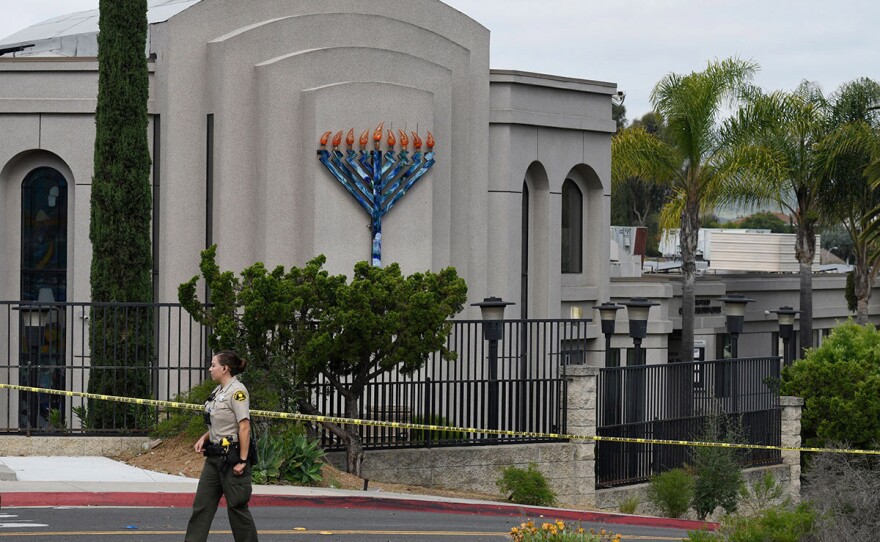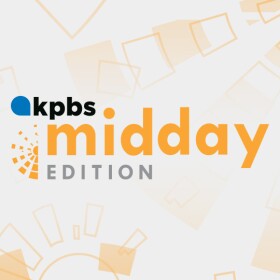The Chabad of Poway synagogue held an online memorial service Sunday to remember the victims of an attack by a white supremacist that took place one year ago Monday.
Rabbi Mendel Goldstein opened the memorial with a prayer for those who’ve fallen victim to the coronavirus pandemic. Goldstein was in the synagogue with his children on April 27 when a 19-year-old man entered with an assault rifle and opened fire.
The shooting injured Goldstein's father, then also a rabbi at the synagogue, and an 8-year-old girl. It killed 60-year-old Lori Kaye.
"Lori was the first person to be there when somebody was ill," Kaye's husband, Dr. Howard Kaye, said during the service. "She helped all people of nationalities, of all religions."
The shooting took place as the congregation gathered to mark the final day of Passover. Goldstein recalled the survivors gathering after the shooting to continue their service.
"It's hard to convey the terror, the pressure, the confusion we all felt at the time," he said. "And yet the most natural thing for us to do was to continue praying as a community, not allowing the horrors of the attack to stop us from observing Passover."
Prosecutors are seeking the death penalty for the gunman, who described his hatred for Jews in an online post before the shooting. His trial is scheduled to begin June 2.








